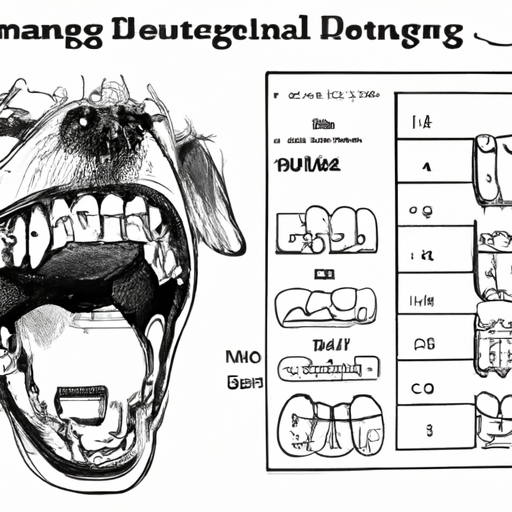“`markdown
How Many Teeth Do Dogs Have?
Understanding Canine Dental Structure
You might be curious to know that just like humans, dogs also start with baby teeth that eventually fall out making way for adult teeth. A newborn puppy has no teeth at all. They start getting their baby or deciduous teeth when they are about two to four weeks old.
The Puppy Teeth Phase
By the time a puppy is about eight weeks old, they have all their baby teeth. This includes:
- 12 Incisors
- 4 Canines
- 12 Premolars
A total of 28 puppy teeth to be precise. These teeth are sharp and needle-like, which is why you feel a sharp pain when a puppy bites.
- Incisors: These are the small teeth at the front of the mouth, used for nibbling.
- Canines: These are the long, pointed teeth that dogs use to tear food.
- Premolars: Located just behind the canines, dogs use these teeth to shear and crush food.
Transition to Adult Teeth
As the puppy grows, these teeth will begin to fall out, replaced by permanent adult teeth. The process typically starts around three to four months of age and continues until the pup is about six months old.
| Type of Tooth | Number in Puppies | Number in Adults |
|---|---|---|
| Incisors | 12 | 12 |
| Canines | 4 | 4 |
| Premolars | 12 | 16 |
| Molars | 0 | 10 |
| Total | 28 | 42 |
Importance of Dental Care
Just as you care for your own teeth, your dog’s dental health should not be neglected. Regular brushing and dental check-ups can prevent many health issues. Moreover, be aware of the signs of dental problems, which may include bad breath, difficulty eating, and red or swollen gums.
FAQ’s
Q: When do puppies lose their baby teeth?
A: Puppies start to lose their baby teeth around 12-16 weeks of age.
Q: How many teeth do adult dogs have?
A: Adult dogs typically have 42 teeth.
Q: How often should I clean my dog’s teeth?
A: Ideally, you should brush your dog’s teeth daily, but a minimum of once per week is recommended.
Q: What are signs of dental problems in dogs?
A: Signs may include bad breath, difficulty eating, and red or swollen gums.
Q: Can dogs get cavities?
A: Yes, dogs can get cavities, but they are less common than in humans.
Remember, understanding your dog’s dental health is a crucial part of their overall wellbeing. By knowing what is normal for your furry friend, you can ensure they live a healthy, happy life.
“`



